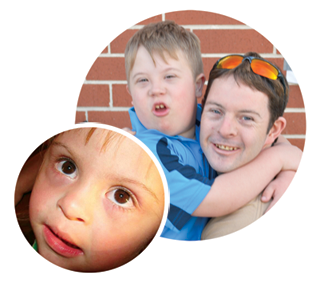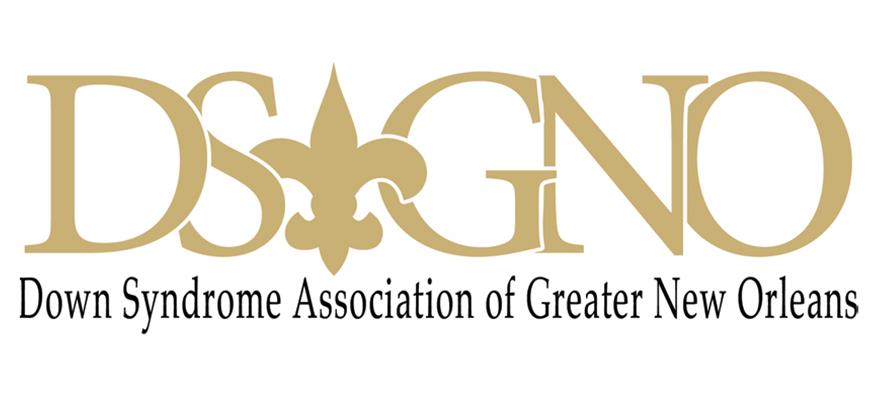
There are many different types of prenatal tests for Down syndrome. In order to best understand what the results mean for you and your pregnancy, it is important to understand which type of test you received :
The “triple screen,” “quadruple screen,” “first trimester combined screen,” “integrated screen,” and “contingency screen” are all different types of prenatal screening tests that involve, to varying degrees, blood work and ultrasound findings. These screening tests provide you a risk assessment, not a diagnosis, and the results should be communicated as such. In other words, you should not be told that your child is “positive” or “negative” for Down syndrome. Instead, the results indicate the probability (or degree of chance) that your child will have Down syndrome. For example, you might be told that your child has a 1 in 300 chance of having Down syndrome. It is important to realize that different people can interpret probabilities in very different ways. Current Down syndrome prenatal screening results are anywhere from 65 to 95 percent accurate depending on the exact test.
 Determining with virtual certainty that your child has Down syndrome requires an invasive test, where a needle is inserted into the pregnant abdomen. Usually administered after the 15th week of pregnancy, an “amniocentesis” analyzes a uterine fluid sample, which contains fetal cells. The chromosomes of these cells can be tested to determine whether Down syndrome is present. Administered usually 10 to 14 weeks into the pregnancy, “chorionic villus sampling” or “CVS” analyzes fetal cells like in an amniocentesis, but using placental not uterine fluid. Both these tests carry a small risk of miscarriage. If you have received prenatal tests that suggest or confirm Down syndrome, remember that DSAGNO is here for you – with accurate, up-to-date information and the opportunity to speak with a parent mentor through our Parent-to-Parent Support Program. See below for details.
Determining with virtual certainty that your child has Down syndrome requires an invasive test, where a needle is inserted into the pregnant abdomen. Usually administered after the 15th week of pregnancy, an “amniocentesis” analyzes a uterine fluid sample, which contains fetal cells. The chromosomes of these cells can be tested to determine whether Down syndrome is present. Administered usually 10 to 14 weeks into the pregnancy, “chorionic villus sampling” or “CVS” analyzes fetal cells like in an amniocentesis, but using placental not uterine fluid. Both these tests carry a small risk of miscarriage. If you have received prenatal tests that suggest or confirm Down syndrome, remember that DSAGNO is here for you – with accurate, up-to-date information and the opportunity to speak with a parent mentor through our Parent-to-Parent Support Program. See below for details.
For expectant parents of children with Down syndrome, any opportunity to speak with other parents who have experienced what you are experiencing can be invaluable. DSAGNO’s Parent-to-Parent Program is a volunteer group of trained parent mentors available to listen, share, answer questions, and provide valuable information. If you would like to speak with a parent who also received a prenatal diagnosis, please call 504-259-6201 or e-mail outreach@dsagno.org.
National booklet “Understanding a Down Syndrome Diagnosis”
The 2011 edition of “Understanding a Down Syndrome Diagnosis” contains the latest medical and developmental information about people with Down syndrome as well as local and national resources, pregnancy options and helpful visuals and graphics. This booklet has been reviewed by all the major medical organizations involved in expectant mothers’ health. To request a copy of this booklet, call 504-259-6201 or e-mail outreach@dsagno.org. The booklet is also available for download (to iPad, iPhone, epub, or Kindle) at lettercase.org.
• Visit our national affiliate, the National Down Syndrome Congress (NDSC), for a wealth of information for expectant parents.
• The National Down Syndrome Society’s “A Promising Future Together” guide is written specifically for new and expectant parents.
• Brighter Tomorrows provides families with balanced information about receiving a prenatal or postnatal diagnosis of Down syndrome.
A free, downloadable book for expectant parents who have made the decision to continue their pregnancy, Diagnosis to Delivery: A Pregnant Mother’s Guide to Down Syndrome, is available atwww.downsyndromepregnancy.org. Includes strategies for coping with a Down syndrome diagnosis, medical guidelines for the first year, and support resources.
• Gifts: Mothers Reflect on How Children with Down Syndrome Enrich Their Lives, edited by Kathryn Lynard Soper.
Woodbine House Publishers specialize in books on a variety of developmental disabilities, including Down syndrome.
We understand that not all birth families feel they are able to meet the needs of children with Down syndrome. The National Down Syndrome Adoption Network provides information to birth families who may be seeking alternatives to parenting as they prepare for the arrival of their child. The network currently has over 200 registered families, each waiting to adopt a baby with Down syndrome.
